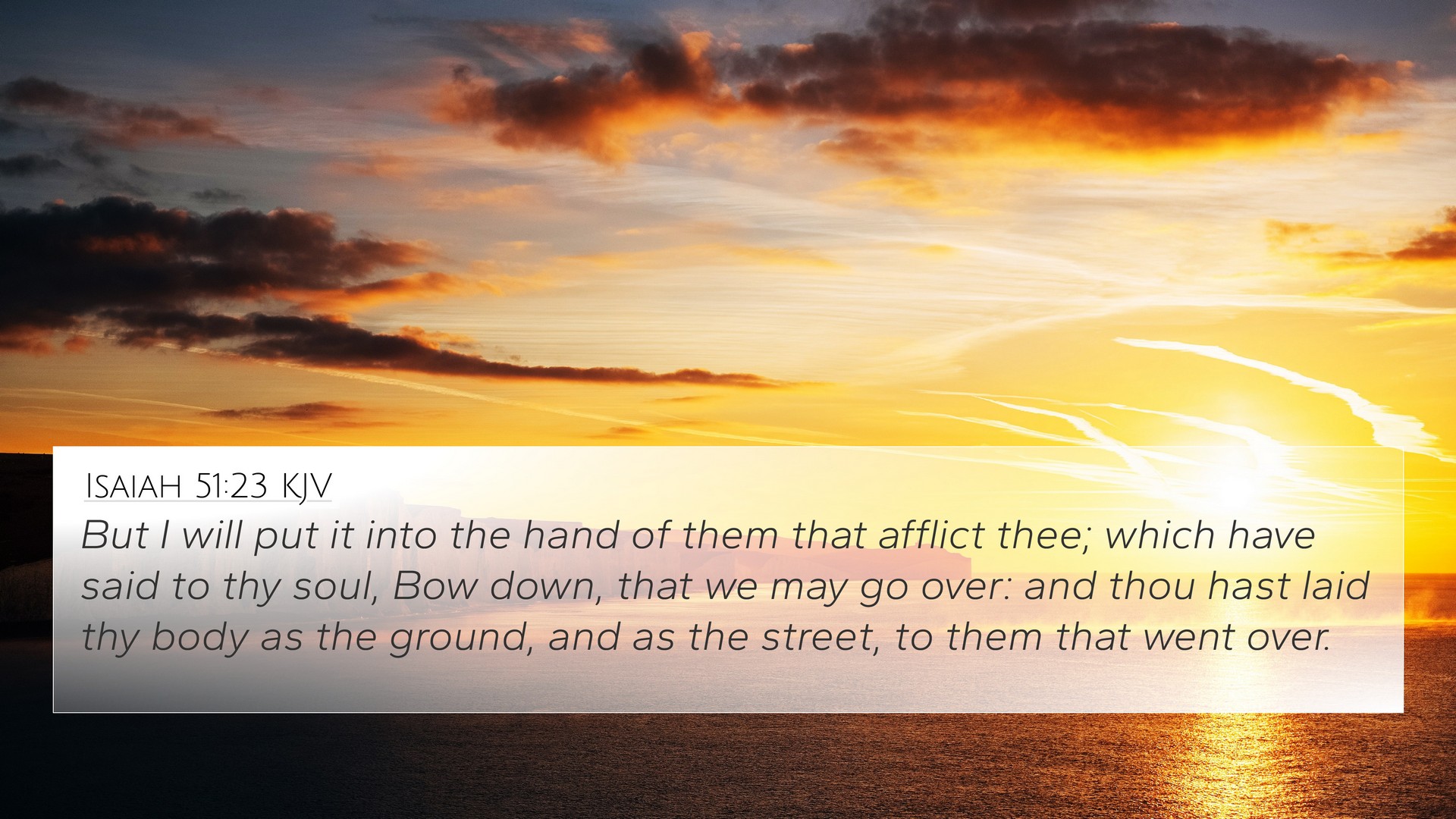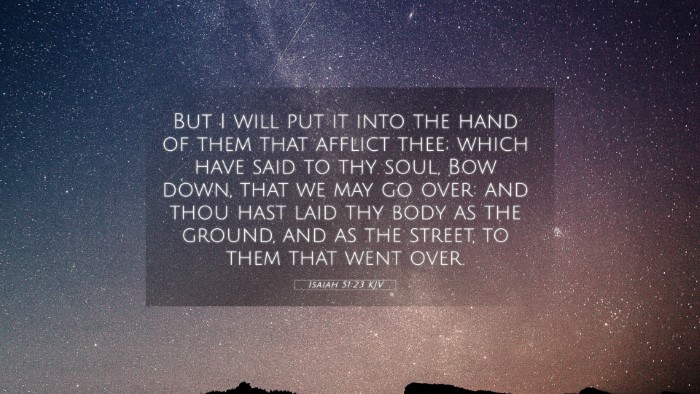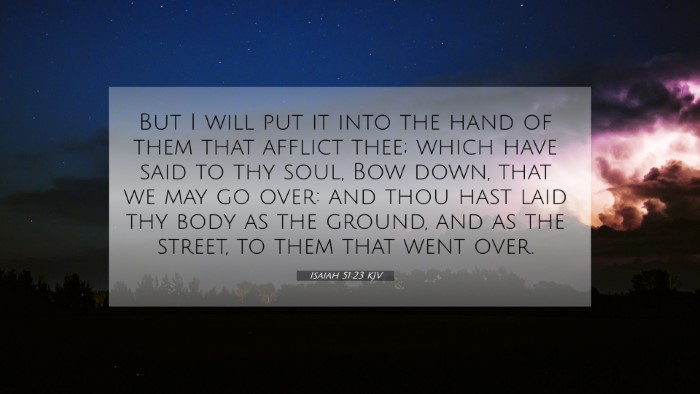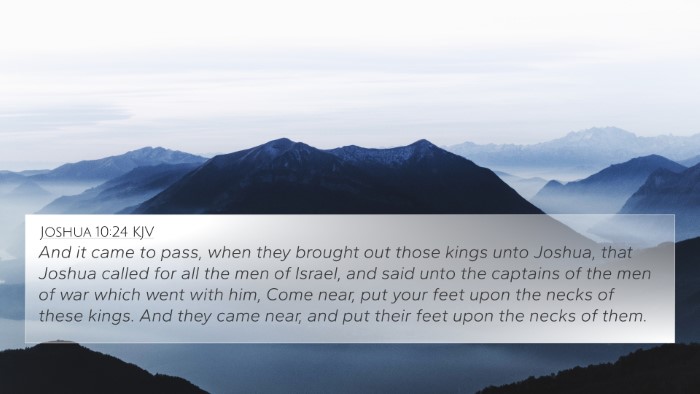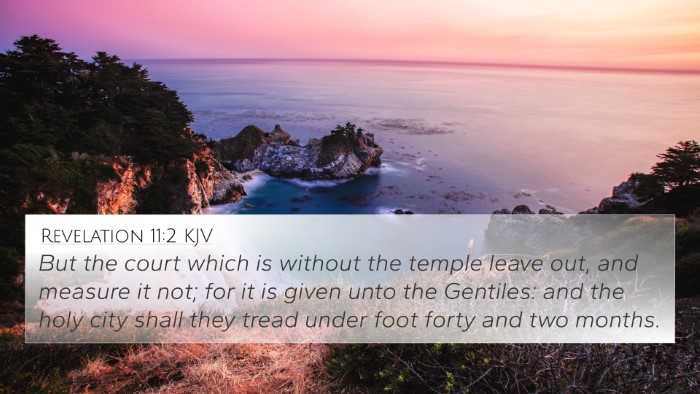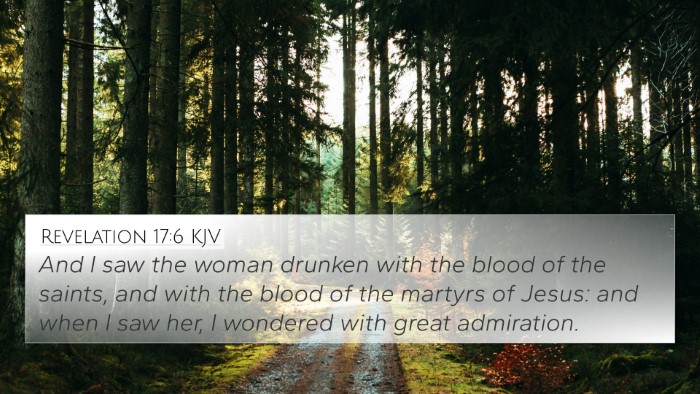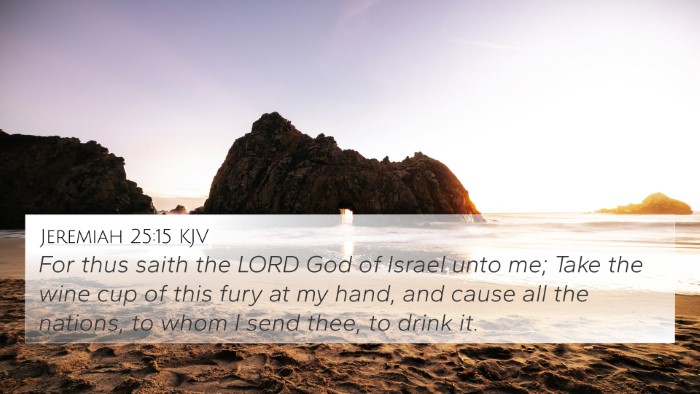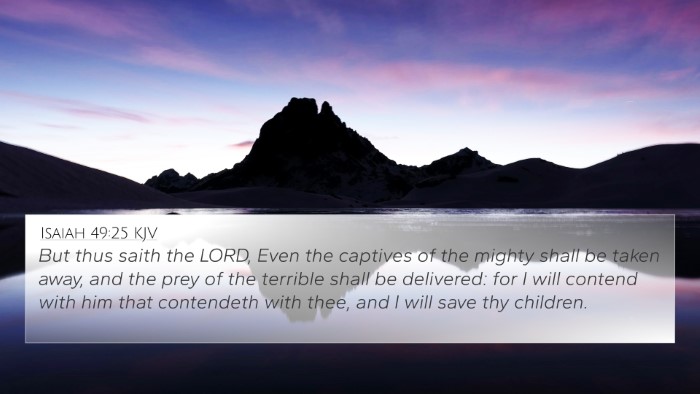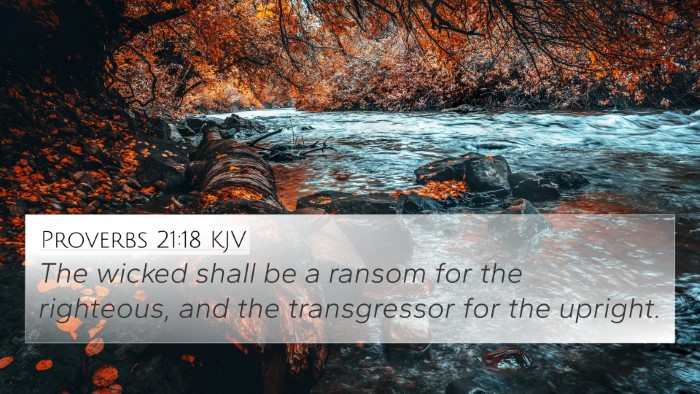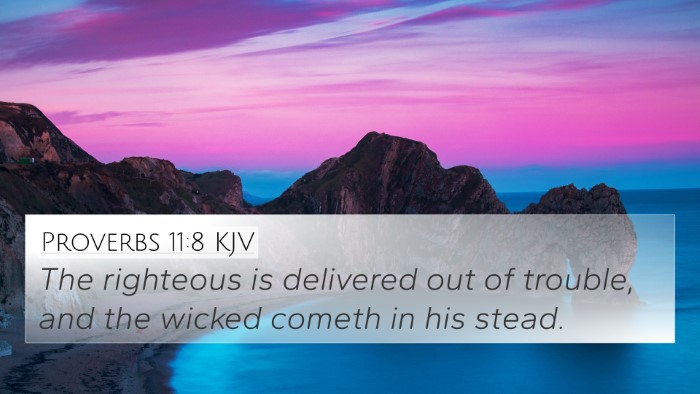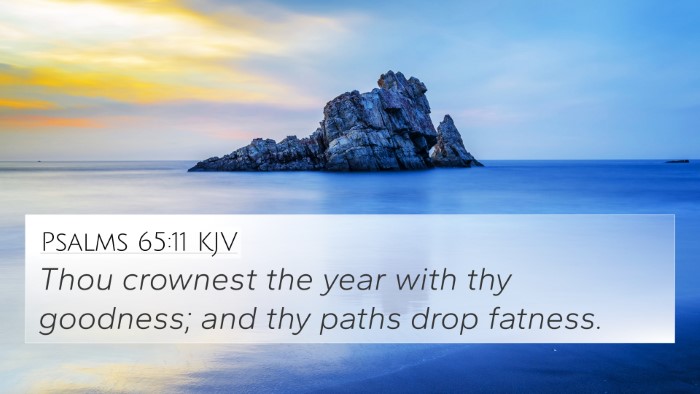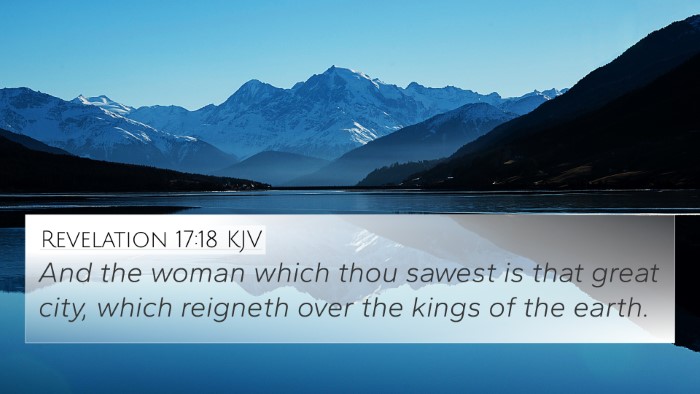Understanding Isaiah 51:23
The verse Isaiah 51:23 reads: "But I will put it into the hand of them that afflict thee; which have said to thy soul, Bow down, that we may go over: and thou hast laid thy body as the ground, and as the street, to them that went over." This verse is loaded with meaning and reflects deep themes of judgment and divine justice.
Summary of Isaiah 51:23
This verse speaks directly to the plight of God’s people, representing a message of hope amidst their suffering. The language used in this text indicates a reversal of fortunes – where those who have oppressed the people of Israel will ultimately be handed judgment and punishment from God, as illustrated by the metaphor of being laid "as the ground" for others to walk upon.
Commentary Insights
-
Matthew Henry:
Henry highlights the notion of God's ultimate justice. He explains that the oppressors will face the consequences of their actions, and their time will come when they will be humbled themselves. This emphasis on divine retribution offers comfort to those who have been wronged.
-
Albert Barnes:
Barnes points out that the phrase "I will put it into the hand" suggests a divine hand in control over the circumstances. He interprets this as a sign of God’s sovereignty, demonstrating that God not only sees the affliction but also actively intervenes in the affairs of men, redistributing justice.
-
Adam Clarke:
Clarke expands on the emotional aspect of the verse, noting the historical context where the Israelites experienced oppression. He emphasizes the need for patience and faith during trials and illustrates that the time of retribution for their enemies is assured as part of God’s plan.
Cross-References for Isaiah 51:23
This verse connects with several other passages in the Bible that expound on similar themes of oppression, divine justice, and comfort for the afflicted:
- Isaiah 40:2: "Speak ye comfortably to Jerusalem, and cry unto her, that her warfare is accomplished, that her iniquity is pardoned."
- Psalms 9:16: "The Lord is known by the judgment which he executeth: the wicked is snared in the work of his own hands."
- Romans 12:19: "Dearly beloved, avenge not yourselves, but rather give place unto wrath: for it is written, Vengeance is mine; I will repay, saith the Lord."
- 2 Thessalonians 1:6: "Seeing it is a righteous thing with God to recompense tribulation to them that trouble you."
- Revelation 6:10: "And they cried with a loud voice, saying, How long, O Lord, holy and true, dost thou not judge and avenge our blood on them that dwell on the earth?"
- Matthew 5:11-12: "Blessed are ye, when men shall revile you, and persecute you, and shall say all manner of evil against you falsely, for my sake."
- Micah 7:10: "Then she that is mine enemy shall see it, and shame shall cover her which said unto me, Where is the Lord thy God?"
Thematic Connections
Isaiah 51:23 serves as a poignant reminder of the themes of justice, vindication, and hope throughout the Scriptures. The interconnectedness of these verses provides a rich tapestry of God’s promises regarding suffering and deliverance:
- The theme of God's judgment on the wicked: seen through Isaiah’s prophecies and reiterated in the New Testament.
- The assurance of God's comfort to those who suffer: a continual message from Psalms to the Gospels.
- God's sovereignty over history: which is echoed in both the Old and New Testament narratives.
Exploring Connections Between Bible Verses
By conducting a comparative Bible verse analysis, one can uncover deeper meanings in Isaiah 51:23. The tools for Bible cross-referencing, such as concordances and thematic guides, can assist in these studies. Users interested in finding cross-references for specific verses can enhance their understanding of how scripture speaks to issues of justice and suffering.
Practical Application of Cross-Referencing
Utilizing a Bible cross-reference guide or a comprehensive Bible cross-reference system can reveal inter-Biblical dialogues that underscore the themes present in Isaiah 51:23. Understanding how different scriptures relate helps in sermon preparation, personal study, and teaching others about the interconnectedness of Biblical truths.
Conclusion
Isaiah 51:23 stands as a powerful verse that reflects the certainty of divine justice and serves as a source of comfort for those who endure hardship. With careful cross-referencing and a deeper look into related scriptures, one can fully appreciate the richness of this verse and its implications for believers today.
